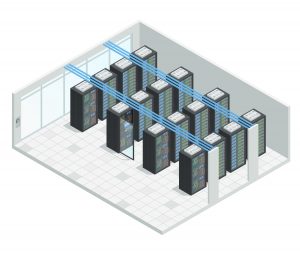
In today’s digital landscape, businesses and individuals are constantly seeking ways to optimize their application performance and enhance their computing capabilities. One solution that has gained prominence is the use of bare metal servers. Unlike virtual servers or cloud instances, bare metal servers offer unique advantages that can unlock the full potential of your applications. In this article, we will delve into the world of bare metal servers, exploring what they are, how they work, and the benefits they bring to the table.
What are Bare Metal Servers?
Bare metal servers, also known as dedicated servers, are physical servers that provide exclusive resources to a single user or organization. Unlike virtual servers that share resources with other virtual machines, bare metal servers offer dedicated CPU, RAM, storage, and network components. This exclusivity ensures that users have full control over the server’s resources and can optimize them according to their specific needs.
Hardware Specifications
One of the primary advantages of bare metal servers lies in their robust hardware specifications. Since they are dedicated physical servers, they typically offer high-performance components that can handle demanding workloads. These servers often come equipped with powerful CPUs, large amounts of RAM, and fast storage options such as solid-state drives (SSDs). The hardware resources are not shared with other users, ensuring consistent performance and reducing the risk of resource contention.
Operating System Control
With bare metal servers, users have full control over the operating system that runs on the server. This level of control allows for greater flexibility and customization. Users can choose their preferred operating system and configure it to meet their specific requirements. This capability is particularly beneficial for applications that have unique dependencies or require specialized configurations.
Performance and Scalability
Bare metal servers excel in providing high-performance and scalability for applications. By eliminating the virtualization layer present in virtual servers, bare metal servers can offer direct access to the server’s hardware resources. This direct access results in lower latency and improved I/O performance, allowing applications to achieve optimal performance levels. Furthermore, bare metal servers can easily scale vertically by adding more resources to meet increasing demands. This scalability is especially valuable for resource-intensive applications or businesses experiencing rapid growth.
Security and Isolation
Another crucial aspect of bare metal servers is the enhanced security and isolation they provide. Since the server resources are not shared with other users, the risk of unauthorized access or data breaches is significantly reduced. This isolation makes bare metal servers an ideal choice for applications that handle sensitive or confidential data. Additionally, users have complete control over security configurations, allowing them to implement their preferred security measures and compliance standards.
Use Cases
Bare metal servers are well-suited for a wide range of applications and industries. Here are a few notable examples:
-
High-performance computing
Applications that require substantial computational power, such as scientific simulations or financial modeling, can greatly benefit from bare metal servers’ dedicated resources and performance capabilities.
-
Database hosting
Bare metal servers provide the reliability and performance required for running databases with large datasets or complex queries. They ensure consistent and fast data access, leading to improved application responsiveness.
-
Content delivery networks (CDNs)
CDNs rely on efficient content distribution to ensure fast delivery to end-users. Bare metal servers can handle the demanding traffic and caching requirements of CDNs, resulting in better content delivery performance.
-
Gaming servers
Online gaming requires low latency and high server performance to deliver a smooth and responsive gaming experience. Bare metal servers are ideal for hosting gaming servers, ensuring optimal gameplay for players.
Bare metal servers offer a compelling alternative to virtual servers and cloud instances, enabling users to unleash the full potential of their applications. With dedicated hardware resources, complete control over the operating system, and enhanced performance, scalability, and security, bare metal servers cater to a wide range of demanding workloads. By leveraging bare metal servers, businesses and individuals can optimize their application performance, deliver exceptional user experiences, and achieve their computing goals with confidence.



